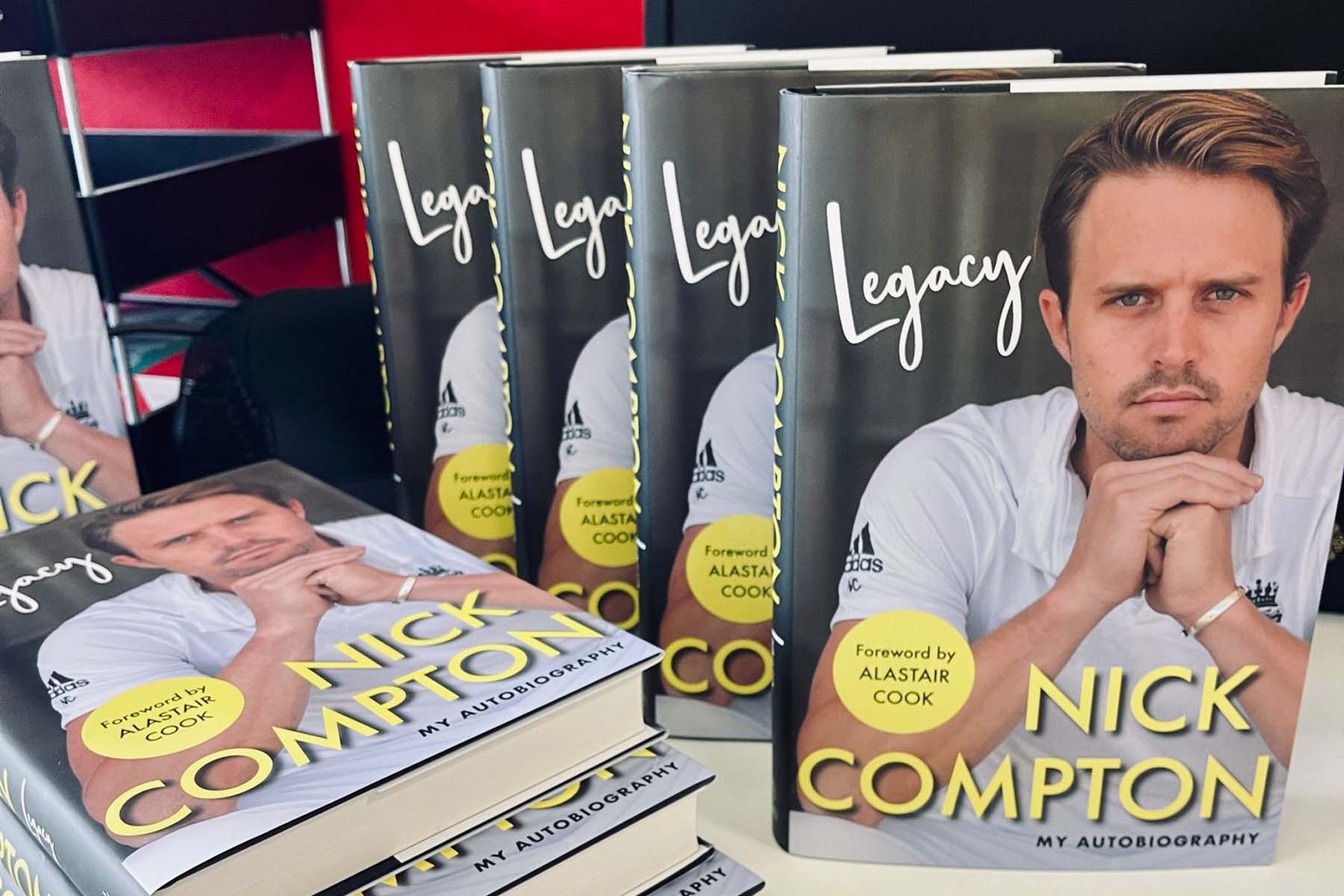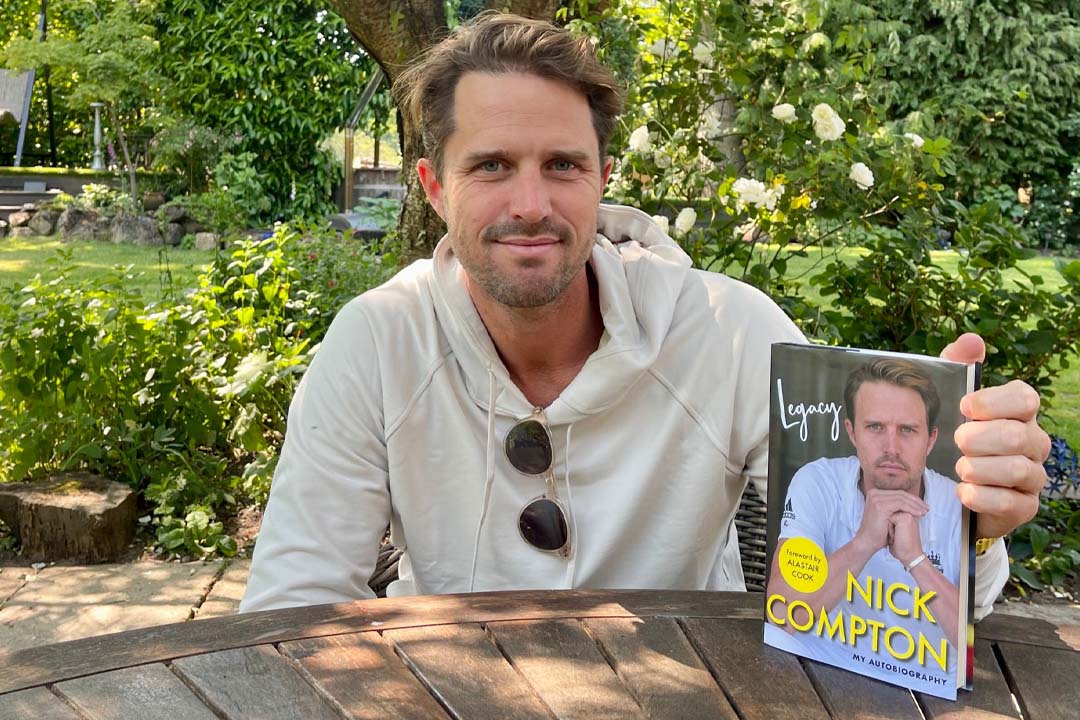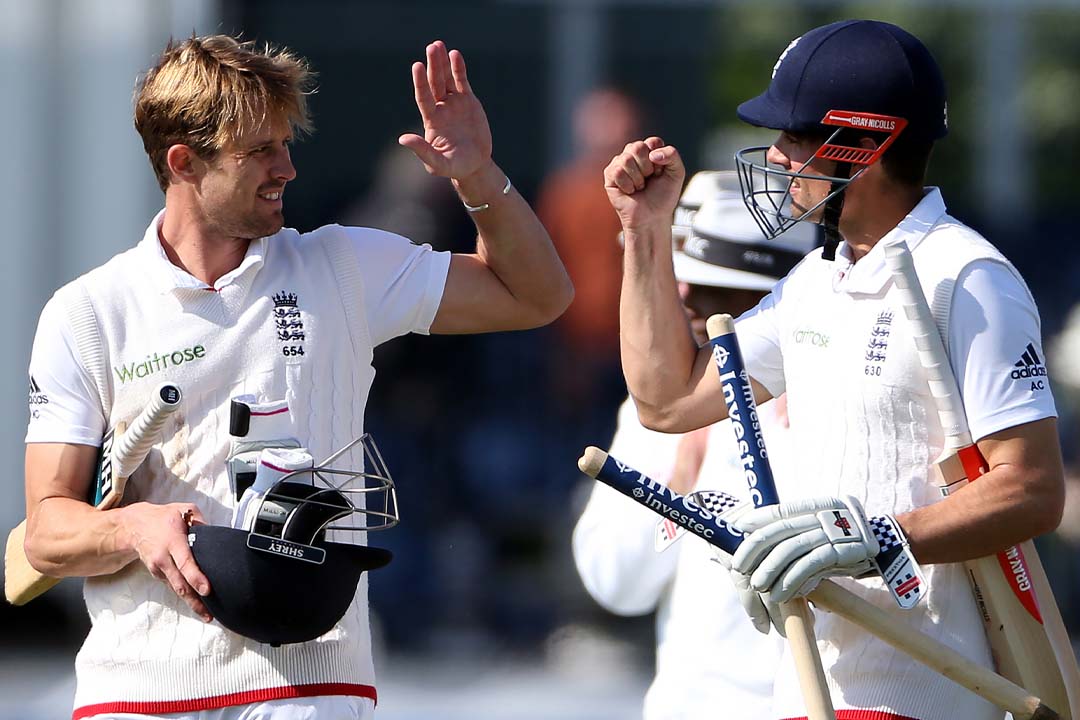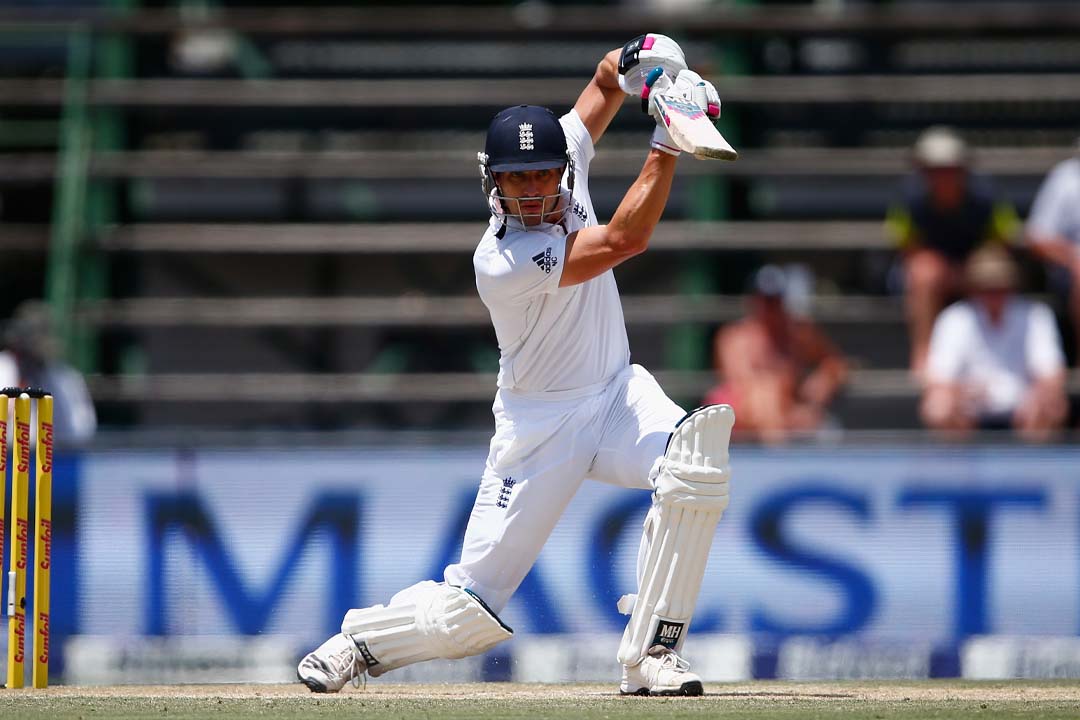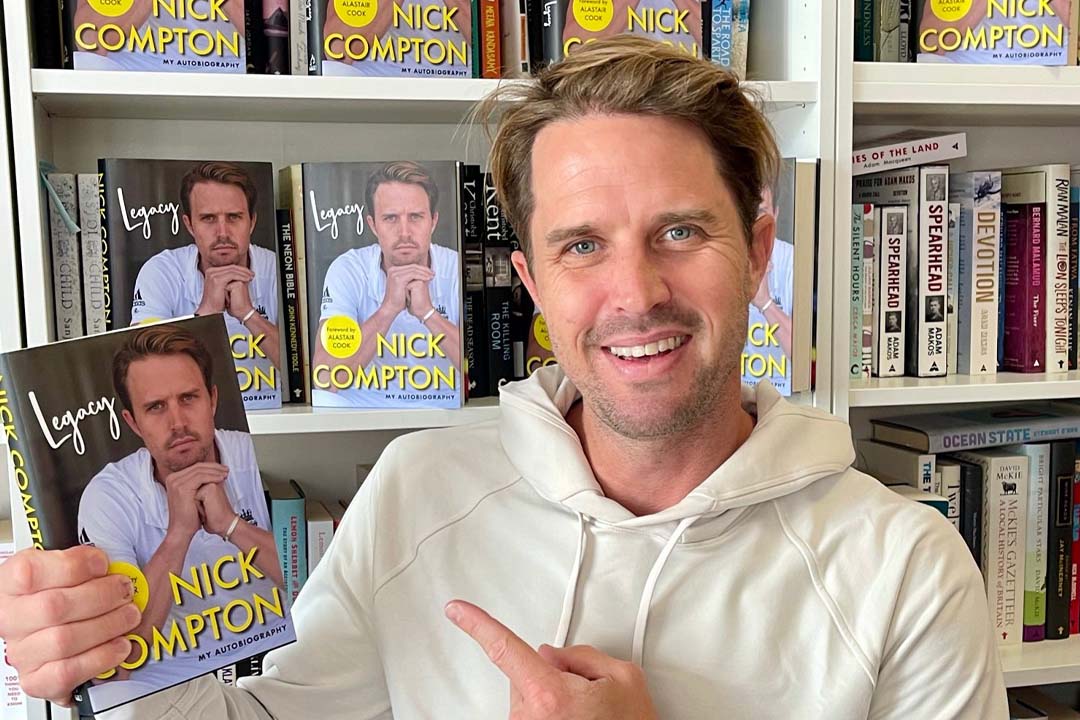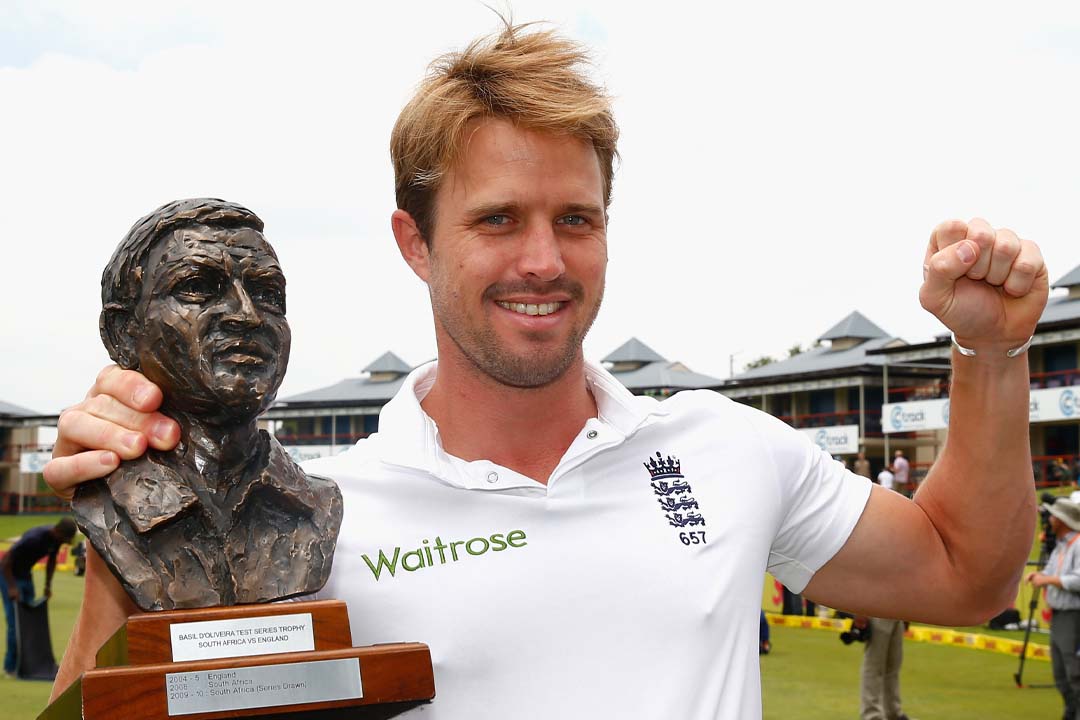The name Compton is etched in the cricketing history books. Denis Compton played 78 Test matches for England, scored 17 hundreds and has a stand named after him at the home of cricket.
His grandson, Nick, had an impressive career of his own representing his country in 16 Test matches, scoring two hundreds and winning away series in South Africa and India.
The younger Compton wanted to follow in his grandfather’s footsteps and so left South Africa where he grew up to chase a career as a professional cricketer.
More than 12,000 First-Class runs at an average of over 40 suggests a successful career but in this new open and honest account of his time as a player, Compton admits that he was his own harshest critic.
The 40-year-old also opens up about his mental health struggles that he says ‘hampered his career’, as well as delving in to his family and how he dealt with his sister’s drug addiction and attempted suicide.
Nick Compton: Legacy explores the life of a cricket ‘obsessive’ and how he has dealt with coming out of the game that he feels he still has so much to offer. Compton compares the ‘old Nick’ to the ‘new Nick’ and how far he has come with his mental health and his want to help other families that might be in a similar situation to him.
The former Middlesex batter also talks of how his photography has been part of his healing process and wants to continue exploring his creative and artistic side.
The PCA spoke to the former England opener about his new book which can be ordered via the links at the bottom of this page.
- What was the reasoning behind releasing the book now?
- Compton: I think during the span of my career I had these struggles and the things that took some time to come to terms with. It was partly due to encouragement from people, including those at the PCA to actually tell my story. I think it was a particularly difficult period for me towards the end of my career, the world of mental health had changed and the stigma had changed, so he said he thought it would be a good idea if I told my story, because mental health hampered my career. To begin with I was against it, I thought do I just want to be another mental health statistic? I had some real struggles towards the end at Middlesex and then I had some time to reflect after my career and was approached by a publisher and met a really great writer who I co-wrote the book with and from that perspective it was quite a therapeutic thing to do, to gain some more insight into what I’d done and to see if it could help other people. The book isn’t so much about how great an innings I might have played in 2012, it’s about trying to display that even with struggles one can still be successful, mental health doesn’t stop you from being successful. It can be paralysing but despite that you can still achieve the things you want to and that was one of the main reason behind writing the book.
- How would you describe your cricketing career?
- Compton: I’m very proud of my cricketing career, I think writing the book has given me some more perspective of what I was dealing with from a young age. Looking back and counting that I had 12 surgeries, whilst navigating problems that I was having away from home, it’s hard for me to say and there are things I didn’t achieve but I do feel proud of what I did. I played with integrity and fight and that’s what Test cricket meant to me. There are a few regrets, I would have loved to have lasted longer for England and I felt there was more in me. I scored Test hundreds and won important series so those are good memories.
- Is the hope that the book will help others that are struggling with mental health?
- Compton: Yes, with the mental health side but also I’ve got a family member that struggled with drug addiction and there are many families out there too I’m sure that have been in the same situation. I think there are a lot of areas of the book that people can identify with and I do hope that it can provide some normality for people so they realise that this does go on in other families and sometimes it takes someone else to talk about it to realise you’re not alone. So naturally I have a lot of sympathy for people that are going through similar struggles.
- With hindsight do you wish you reached out for help earlier?
- Compton: I reached out very early on I just don’t think people were ready to hear it yet. There wasn’t a lot of understanding around it, I was very open about it but I think there is a real opportunity through the book for teams to support people with mental health and do something about it that goes beyond the bounds of words. I think mental health is still not fully understood, I think there’s lots of good work being done. But in many parts of the world people still shy away from conversations about mental health. In some way maybe I wish I’d come out with it at the end of my career but I’m glad that I’ve had that time out the game to give it some perspective.
- How’s the photography going at the moment?
- Compton: It’s been a massive part of my recovery and it’s given me the opportunity to travel around the world and it makes me incredibly happy. Having left home at a young age, travelling to other countries was the biggest highlight for me playing for England and now I know travelling and photography are a big part of my value system and I get to see the real people in these countries. I’m trying to figure out where I could potentially sit in the professional photography world. Trying to connect sport and photography is something that I’m very passionate about and I think cricket is a great vehicle for that and it’s something that I love. It excites me when I find an artistic moment.
- You mention in the book the difference between the ‘old Nick’ and the ‘new Nick’, what is the difference?
- Compton: The ‘new Nick’ is someone that is maybe a little kinder to himself and more accepting of the identity and the career that I had. I’ve been my own harshest critic throughout my life and trying to be kinder to myself is something the ‘new Nick’ is trying to embrace. I think realising that a lot of my life was about my drive to become a great player and sport can be quite an insular world. Having had time away from the game I have a better perspective on life and more time with family. I’ve still got a lot of things to explore inside and outside the game of cricket. Cricket is a vastly changing landscape but I have a passion for seeing young people excel so I think I could still offer something to cricket.
Nick Compton: Legacy is available to buy on Waterstones by clicking here.
Nick Compton: Legacy is available to buy on Amazon by clicking here.
